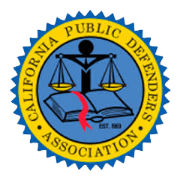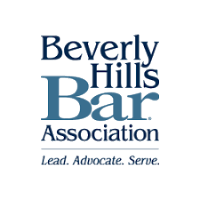Due to the COVID-19 pandemic, small business owners and entrepreneurs have confronted unprecedented obstacles in recent years. Government assistance programs, such as the Paycheck Protection Program (PPP), Economic Injury Disaster Loans (EIDL), and Small Business Administration (SBA) loans, have been lifelines for numerous struggling enterprises. Nevertheless, instances of fraudulent loan acquisition and misuse have resulted in increased scrutiny and enforcement actions from federal agencies, resulting in an increase in legal cases. In certain instances, businesses confronting loan denial or financial distress may contemplate bankruptcy as a remedy. This article attempts to provide a criminal defense attorney’s perspective on the complex legal landscape surrounding fraudulent PPP, EIDL, and SBA loans, as well as bankruptcy issues. In addition, we will discuss relevant federal and California cases pertaining to these issues.
I. Recognizing Illicit Loan Acquisition and Misuse
Fraudulent loan acquisition and misuse can take various forms, including falsifying loan applications, exaggerating payroll expenses, and misusing loan proceeds for unauthorized purposes. Small business proprietors and entrepreneurs who have obtained loans through fraudulent means or misappropriated funds may encounter severe repercussions, such as criminal charges, civil penalties, and loan repayment obligations.
The following are notable federal cases involving PPP, EIDL, or SBA loan fraud:
United States v. Fahad Shah
https://www.justice.gov/opa/pr/owner-wedding-planning-company-pleads-guilty-covid- 19-relief-fraud
In this case, Fahad Shah was accused of fraudulently obtaining over $3 million in PPP loans for a business that had only two employees, while claiming to have 126 employees in the PPP
applications. Fahad Shah allegedly submitted fraudulent Employer’s Quarterly Federal Tax Returns (IRS Form 941) documents for 2019. The funds were purportedly used for personal expenditures, including real estate investments and luxury cars.
United States v. Joshua Jock Bellamy
https://www.justice.gov/opa/pr/former-nfl-player-sentenced-more-three-years-prison- covid-19-relief-fraud
NFL player Joshua Jock Bellamy was accused of conspiring to obtain millions of dollars in fraudulent PPP loans. The funds were allegedly used for personal expenditures, including the procurement of luxury products and services.
United States v. David A. Staveley and David Butziger https://www.justice.gov/opa/pr/two-charged-rhode-island-stimulus-fraud
David A. Staveley and David Butziger were charged with conspiring to obtain more than $500,000 in PPP loans fraudulently by establishing fictitious employees and enterprises. The couple submitted loan applications with fraudulent information, including fabricated tax forms and payroll documents.
The following are notable federal cases from California involving fraudulent loan acquisition and misuse of funds:
United States v. Richard Ayvazyan et al
Case No. 2:20-cr-00579(Central District of California).
Richard Ayvazyan, Marietta Terabelian, and other conspirators have been charged with multiple counts of bank fraud, wire fraud, and money laundering for fraudulently obtaining over $18 million in PPP and EIDL loans. The defendants allegedly submitted fraudulent and false applications using phony and stolen identities, forged documents, and sham corporations.
United States v. Attila Colar, also known as Dahood Sharieff Bey
https://www.justice.gov/usao-ndca/pr/east-bay-man-charged-alleged-multi-million- dollar-payroll-protection-program-fraud
Attila Colar, also known as Dahood Sharieff Bey, was accused of fraudulently obtaining nearly $22 million in PPP loans by providing false information, misleading statements, and glaring omissions. Colar allegedly purchased luxury vehicles and other personal objects with the loan proceeds.
United States v. Andrew Marnell
https://www.justice.gov/opa/pr/california-man-charged-covid-relief-fraud
Andrew Marnell was charged with multiple counts of bank fraud and money laundering for procuring approximately $8.5 million in PPP loans through fraudulent means. Multiple applications submitted by Marnell allegedly contained fraudulent and misleading information, including inflated employee and payroll numbers. Reportedly, he utilized the funds for personal expenditures, including gambling and stock market investments.
United States v. Tamara Dadyan
Case No. 2:20-cr-00579 (Central District of California)
Tamara Dadyan was accused of fraudulently obtaining $360,000 in PPP loans for a phantom company with no actual employees or operations. Dadyan allegedly submitted a loan application containing false information, including employee and payroll information. She reportedly used the funds for personal expenditures and transferred a portion of them to an Armenian account.
These cases illustrate the severity of the potential repercussions for those found to have engaged in fraudulent loan practices.
II. Rejection of PPP Loan Forgiveness
Some business proprietors who have applied for PPP loan forgiveness may be denied due to application discrepancies or loan use issues. In these situations, debtors must redeem the loan according to the terms negotiated with their lender. Refusal to absolve a loan can have a significant impact on a company’s finances, prompting some proprietors to contemplate insolvency as a possible solution.
III. The Influence of Bankruptcy on Cases of Fraudulent Loans
Some business proprietors may find debt relief through bankruptcy, but it is essential to note that fraudulently acquired debts are generally not dischargeable. Even after filing for bankruptcy, a debtor who obtained a PPP, EIDL, or SBA loan through fraudulent means may be required to repay the loan. Additionally, attempting to discharge fraudulently acquired debts can result in severe legal consequences, such as bankruptcy fraud charges, fines, and even imprisonment.
Filing for bankruptcy does not shield a debtor from potential criminal prosecution or ongoing investigations in connection with fraudulent loan cases. Before considering bankruptcy, business proprietors facing criminal charges or investigations should consult an experienced criminal defense attorney.
Although there are no reported bankruptcy cases directly relevant to PPP, EIDL, and SBA loan frauds because these loans are relatively new, there are a number of federal cases involving bankruptcy fraud that may be indirectly pertinent to the concept of fraudulent loans and bankruptcy.
IV. Defending Clients Facing Fraud and Bankruptcy Issues
Defending clients confronting fraud and bankruptcy issues related to PPP, EIDL, or SBA loans requires a comprehensive comprehension of the client’s situation, the development of a solid defense strategy, the navigation of bankruptcy issues, and tenacious representation in criminal and civil proceedings. In both criminal and civil proceedings, a knowledgeable and competent attorney can identify key issues, present mitigating factors, and advocate for the client’s best interests.
V. COVID-19 EIDL Statute of Limitations Act of 2022:
In August 2022, President Joe Biden signed two bills that give the federal government more time to detect and prosecute fraud related to the Paycheck Protection Program (PPP) and COVID-19 Economic Injury Disaster Loans (EIDL), two of the most popular COVID-19 small business relief programs.
The bills are:
H.R. 7352, the “PPP and Bank Fraud Enforcement Harmonization Act of 2022,” extends the statute of limitations for bringing fraud charges in connection with PPP loan applications to 10 years. The law applies to the program’s first and second draw loans.
The “COVID-19 EIDL Fraud Statute of Limitations Act of 2022,” H.R. 7334, grants prosecutors 10 years to file fraud charges related to loan applications from the EIDL program related to COVID-19, including EIDL advances and Targeted EIDL advances.
The measures stipulate that any criminal or civil enforcement action alleging fraud must be filed within ten years of the alleged offense.
Conclusion
For small business proprietors and entrepreneurs facing criminal charges or bankruptcy issues, fraudulently obtained PPP, EIDL, and SBA loans present complex legal challenges. Due to the complexities of these cases, it is crucial that clients dealing with issues related to fraudulent loans and bankruptcy work with an experienced attorney who can provide a comprehensive comprehension of the legal landscape and devise a strategic defense. As federal loan programs continue to evolve and new cases emerge, legal counsel and expertise in this area of law will remain indispensable.
The cited federal and California cases serve as a reminder of the potential repercussions of engaging in fraudulent loan practices and the necessity of retaining legal counsel. Attorneys must keep apprised of the most recent developments in case law, legislation, and regulatory guidance in order to effectively represent clients facing the difficulties of fraudulent loans
and bankruptcy. By doing so, they are able to assist clients in navigating the legal complexities and working toward the best possible outcomes in these challenging situations.




